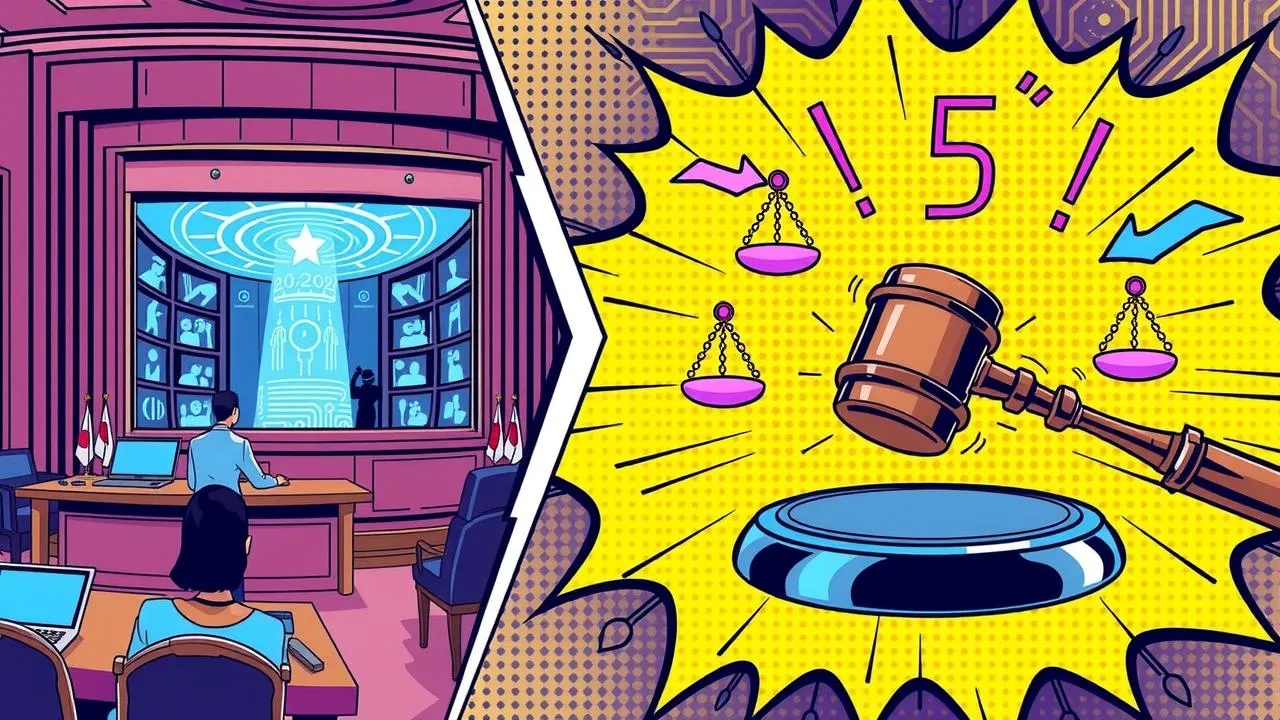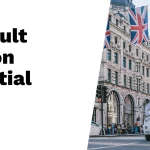Now Reading: Common Mistakes to Avoid When Working with a Lawyer in 2025
-
01
Common Mistakes to Avoid When Working with a Lawyer in 2025
Common Mistakes to Avoid When Working with a Lawyer in 2025

When working with a lawyer in 2025, several common mistakes can hinder your legal experience. First, it’s crucial to research your lawyer’s background thoroughly; understanding their credentials and reputation can make all the difference. Also, open communication is key—don’t hold back any information that may be important for your case. Additionally, make sure you fully grasp their fee structure to avoid surprises later on. You should also set clear expectations regarding goals and timelines from the start while remaining engaged in the process. Finally, using technology effectively can streamline communication and document sharing, improving your overall experience with legal representation.
1. Not Researching the Lawyer’s Background

Before hiring a lawyer, it’s essential to do your homework. Start by checking their credentials, such as their education and any specialties they may have. Look into their experience—how long have they been practicing, and do they have a track record in cases similar to yours? Online reviews and client testimonials can offer insights into their reputation, but also be aware of any disciplinary actions taken against them. For example, if you’re facing a family law issue, finding a lawyer who has successfully handled similar cases can greatly increase your chances of a favorable outcome. Make sure the lawyer’s expertise aligns with your specific legal needs to ensure you receive the best representation.
2. Failing to Communicate Openly
Open communication is essential in a lawyer-client relationship. When clients hold back information or fail to share all pertinent details, it can significantly impact their lawyer’s ability to advocate effectively. For instance, if a client omits crucial facts about their case, the lawyer may not be prepared for potential challenges or opportunities that arise. Being honest and transparent, even about seemingly trivial matters, allows the lawyer to strategize appropriately and make informed decisions. Additionally, regular updates about any changes in circumstances or new developments can help the lawyer adjust their approach as needed. This two-way communication fosters trust and ensures that both parties are aligned in their objectives.
3. Ignoring Fee Structures

Understanding a lawyer’s fee structure is essential before you agree to their services. Lawyers may charge in various ways: hourly rates, flat fees, or contingency fees, where their payment depends on winning your case. It’s important to clarify what is included in these fees. For instance, if your lawyer charges by the hour, ask how they track time and whether there are any additional charges for phone calls, emails, or other communications. If they work on a contingency basis, ensure you understand what percentage they will take and what expenses you might be responsible for. By being clear about the financial aspects upfront, you can avoid unexpected costs later and ensure that you choose a lawyer who fits your budget.
| Fee Structure Type | Description | Pros | Cons |
|---|---|---|---|
| Hourly Rate | Charged per hour of work by the lawyer. | Predictable costs if time is managed well. | Can become expensive if the case takes longer than expected. |
| Flat Fee | A set fee for specific services or tasks. | Transparency in costs; easier budget management. | May not cover unexpected complications. |
| Contingency Fee | Lawyer gets paid a percentage of the settlement or award only if you win. | No upfront cost; aligns lawyer’s incentives with your outcome. | May take a significant portion of your winnings. |
| Retainer Fee | An upfront fee paid to secure a lawyer’s services, with hourly work deducted from this amount. | Ensures lawyer’s availability; can lead to better prioritization. | May require large upfront costs that may not be fully used. |
4. Not Setting Clear Expectations
Setting clear expectations with your lawyer from the start is essential for a smooth working relationship. During your initial meetings, discuss your goals, timelines, and the strategies you envision. For instance, if you’re involved in a custody case, clarify what outcomes you hope to achieve and how you believe the process should unfold. This alignment ensures that both you and your lawyer have a shared understanding, which can prevent confusion and disappointment later on. Additionally, it allows your lawyer to tailor their approach to meet your specific needs, making it easier to track progress and adjust plans as necessary. Without clear expectations, you might find yourself frustrated if the direction of your case doesn’t align with what you anticipated.
5. Neglecting to Ask Questions
Asking questions is a fundamental part of working with your lawyer. Many clients shy away from seeking clarification for fear of seeming uninformed or burdensome. However, neglecting to ask questions can lead to misunderstandings and confusion about your case. For instance, if you don’t understand a legal term or the implications of a certain strategy, it’s essential to seek clarification. A good lawyer will appreciate your inquiries and will take the time to explain things in a way that you can grasp. This ensures that you remain informed and can make educated decisions throughout your legal journey. If something doesn’t make sense or if you have concerns, don’t hesitate—ask away!
- What are your qualifications and experience in cases like mine?
- Can you provide references from past clients?
- What is your approach to communication throughout the case?
- How will you keep me updated on progress?
- What are the potential outcomes of my case?
- What is your fee structure and are there any additional costs I should be aware of?
- How will you handle my case if I have specific requests or needs?
- What timeline should I expect for my case?
6. Being Unresponsive
Being unresponsive can significantly hinder the progress of your legal case. When your lawyer reaches out for information, documents, or clarification, it’s important to respond promptly. Delays in communication can lead to missed deadlines or opportunities that could affect the outcome of your case. For example, if your lawyer needs a specific document to file a motion and you take too long to provide it, you might risk losing a chance to present your argument in court. Maintaining an open line of communication and being proactive in your responses helps ensure that your lawyer can represent you effectively and efficiently.
7. Overlooking the Importance of a Written Agreement
Having a written agreement with your lawyer is essential for a successful partnership. This document should clearly outline the scope of work, payment terms, and any other important details regarding your case. For instance, if you are engaging a lawyer for a personal injury claim, the agreement should specify the percentage they will take from any settlement. Without this clarity, misunderstandings can arise, leading to disputes over fees or services rendered. A written agreement serves as a safeguard for both parties, ensuring that expectations are managed and responsibilities are defined. Furthermore, in the event of any disagreements, you can refer back to the contract for resolution. Making sure you have this document in place from the start can help avoid confusion and protect your interests.
8. Not Understanding the Legal Process
Understanding the legal process related to your case is essential. It helps you know what to expect and how to interact with your lawyer more effectively. For instance, if you’re involved in a personal injury case, knowing the timeline for filing claims, the discovery process, and potential settlement negotiations can prepare you for each step. This knowledge allows you to ask informed questions and provides context for the advice your lawyer gives. Additionally, being aware of deadlines and procedural rules can prevent costly mistakes, such as missing a filing date or misunderstanding court procedures. Engaging with your lawyer about the legal process not only builds a stronger relationship but also empowers you to take an active role in your case.
9. Assuming All Lawyers Are the Same
It’s a common misconception that all lawyers have the same skills and expertise. In reality, lawyers often specialize in specific areas of law, such as criminal defense, family law, corporate law, or personal injury. For example, a lawyer who excels in handling divorce cases may not have the necessary experience to navigate a corporate merger. This difference in specialization can significantly impact the outcome of your case. Therefore, it’s essential to choose a lawyer whose experience aligns with your specific legal needs. Take the time to ask potential lawyers about their specialties and past cases similar to yours to ensure you’re making an informed choice.
10. Relying Solely on the Lawyer for Outcomes
While your lawyer is an essential ally in your legal journey, it’s crucial to understand that you cannot solely depend on them for the outcome of your case. Legal matters often require your active participation and engagement. For example, if your lawyer requests certain documents or information, timely provision of those materials can significantly affect how your case unfolds. Staying informed about your case, asking questions, and discussing strategies with your lawyer can empower you to make better decisions. Ignoring your role in the process can lead to missed opportunities or ineffective strategies. Take ownership of your legal matters, and work collaboratively with your lawyer to achieve the best possible results.
11. Not Following Legal Advice
Following legal advice from your lawyer is crucial for achieving a favorable outcome in your case. Lawyers understand the intricacies of the law and have experience in navigating the legal system. If they recommend a specific course of action, it is based on their knowledge and expertise. For example, if your lawyer advises you to settle a dispute rather than go to trial, disregarding that advice could lead to a less favorable outcome or even a loss in court. Ignoring legal advice can also result in missed deadlines or failure to comply with legal procedures, which can severely impact your case. It’s essential to trust your lawyer’s judgment and communicate openly if you have concerns about their recommendations.
12. Failing to Prepare for Meetings
Preparing for meetings with your lawyer is essential for ensuring that the time spent is productive and effective. Before each meeting, take the time to gather all relevant documents related to your case, such as contracts, emails, and any correspondence you’ve had. Write down specific questions or topics you want to discuss. For example, if you are unsure about a particular legal term or procedure, note it down so you can ask your lawyer for clarification. This preparation not only helps you make the most of your time but also allows your lawyer to provide you with more tailored and precise advice based on the information you bring. Additionally, being prepared shows your lawyer that you are engaged and serious about your case, fostering a stronger working relationship.
13. Not Reviewing the Case Regularly
Regularly checking in with your lawyer is essential for staying informed about your case’s progress. This practice allows you to understand any new developments, upcoming deadlines, or changes in strategy. For instance, if your case is in litigation, knowing when to expect court dates or deadlines for submitting documents can be crucial for your preparation. Additionally, it enables you to address any concerns or questions you may have in a timely manner. If you don’t connect with your lawyer frequently, you might miss important updates that could impact your case. Setting up periodic reviews, whether weekly or bi-weekly, can help maintain this communication and ensure you are both aligned on the case’s direction.
14. Ignoring Emotional Aspects of Legal Matters
Legal matters often come with a heavy emotional toll. It’s easy to become overwhelmed by stress, anxiety, or frustration during legal proceedings. Ignoring these emotional aspects can lead to poor decision-making and hinder your overall well-being. For instance, during a divorce, the emotional strain can cloud your judgment about asset division or custody arrangements. Acknowledging your feelings is important, and seeking support from friends, family, or professionals can help you manage this stress. Additionally, your lawyer can play a role in addressing any emotional concerns related to your case. They can provide reassurance, explain the legal process, and help you understand the potential outcomes, which can alleviate some of your anxiety. Taking care of your emotional health allows you to engage more effectively in your legal matters.
15. Not Utilizing Technology in Legal Processes
In 2025, technology plays a crucial role in streamlining legal processes, yet many clients still overlook its benefits. Utilizing digital tools for communication, document sharing, and case management can significantly enhance the efficiency of your interactions with your lawyer. For instance, secure client portals allow for real-time updates on case progress, making it easier to stay informed. Video conferencing tools enable quick meetings without the need for travel, saving you time and effort. Additionally, project management software can help track deadlines and organize documents, keeping everything in one place. By embracing these technologies, you not only improve communication with your lawyer but also contribute to a more transparent and organized legal process.
Frequently Asked Questions
1. What should I bring to my first meeting with a lawyer?
It’s important to bring any relevant documents, notes about your case, and a list of questions you want to ask.
2. How can I tell if a lawyer is a good fit for me?
Look for someone who communicates well, understands your needs, and has experience in the area of law related to your situation.
3. What should I expect from my lawyer’s communication?
You should expect timely updates on your case, clear explanations of legal terms, and answers to your questions when you ask.
4. How often should I check in with my lawyer about my case?
It’s a good idea to check in regularly, but it can depend on the specifics of your case. Discuss a plan for communication early on.
5. What are some red flags to watch out for when hiring a lawyer?
Be cautious of lawyers who are not responsive to your messages, make unrealistic promises, or pressure you into making quick decisions.
TL;DR Avoid common mistakes when working with a lawyer in 2025. Research their background, communicate openly, understand fee structures, and set clear expectations. Don’t hesitate to ask questions, remain responsive, and prioritize a written agreement. Understand the legal process, choose a lawyer with relevant expertise, and stay engaged in your case. Always follow legal advice, prepare for meetings, and regularly review your case status. Acknowledge the emotional aspects of legal matters and leverage technology for better efficiency.












